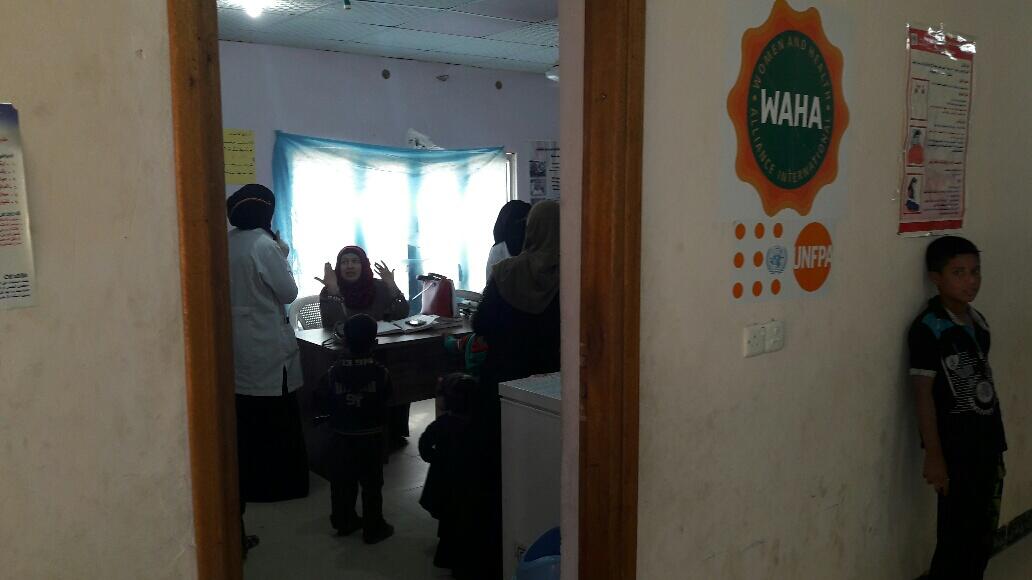27 November 2016, Erbil, Iraq –WHO and UNFPA are scaling up primary and reproductive health services in eastern Mosul to ensure life-saving care for more than 60,000 people living near the front lines.
Two WHO mobile medical clinics were deployed to eastern Mosul as soon as access was possible, marking the first time that health aid reached people in the area since June 2014. WHO-supported health teams provided primary health care services. Delivery services were provided to women and girls at reproductive age through a UNFPA-supported mobile delivery unit.
WHO and UNFPA are also restoring services at the main primary health care clinic in Eastern Mosul by providing medicines, and medical supplies. Managed by the Ninewah Department of Health, the clinic is providing primary health care services, vaccinations, and reproductive health services.
In anticipation of increasing numbers of patients from Mosul city, WHO and UNFPA are scaling up health services in eastern Mosul by establishing three primary health care units and two delivery units. To scale up services for trauma injuries and complicated deliveries, WHO and UNFPA have also positioned mobile medical units and delivery units at a nearby trauma stabilization point.
“Civilians in conflict areas have suffered enough. They should not be further exposed to avoidable health risks. Together with national health authorities and health partners, WHO aims to reach all people in newly accessible areas. WHO is providing mobile medical clinics, ambulances, medicines and supplies that ensure life-saving health care for thousands of people affected by Mosul operations,” said Altaf Musani, WHO Representative in Iraq.
"As new areas become accessible, UNFPA will continue to provide frontline emergency response to meet the reproductive health needs of women and girls including lifesaving medical services to pregnant women. UNFPA is currently supporting and operating 30 mobile/static reproductive health services in total as part of Mosul response operations,” said Ramanathan Balakrishnan, UNFPA Representative in Iraq.
Mobile medical clinics provided by WHO and UNFPA were made possible with funding support from the United States Office of Foreign Disaster Assistance (OFDA), the European Union Aid and Civil Protection department (ECHO), and the Iraqi humanitarian pooled fund. Additional mobile medical clinics will be are in the process of being deployed to support health care to vulnerable populations.
As more areas in Mosul become accessible over the coming weeks, it is anticipated that in excess of 200,000 people will be in need of emergency health services. These include almost 40,000 people who will require urgent interventions and subsequent hospital care and 8,000 pregnant women requiring services for deliveries and newborn care.
******
UNFPA, the United Nations Population Fund, delivers a world where every pregnancy is wanted, every childbirth is safe and every young person’s potential is fulfilled.
WHO is the directing and coordinating authority for health within the United Nations system. It is responsible for providing leadership on global health matters, shaping the health research agenda, setting norms and standards, articulating evidence-based policy options, providing technical support to countries, and monitoring and assessing health trends and improving global health security.
For more information, please contact:
Mohamed Megahed; UNFPA Iraq Communication Officer; megahed@unfpa.org
Ajyal Al Sultany, WHO Iraq Communication Officer; sultanya@who.int



